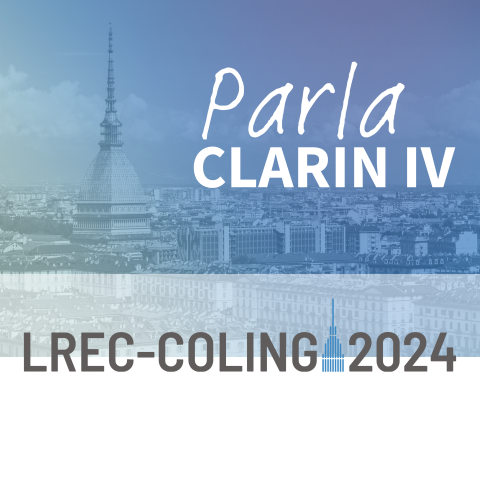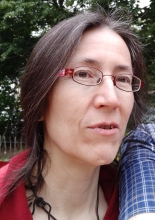
General information
ParlaCLARIN IV Workshop
Parliamentary data is an important source of scholarly and socially relevant content, serving as a verified communication channel between the elected political representatives and members of the society. The development of accessible, comprehensive and well-annotated parliamentary corpora is therefore crucial for the information society, as such corpora help scientists and investigative journalists to ascertain the accuracy of socio-politically relevant information, and to inform the citizens about the trends and insights on the basis of such data explorations. Research-wise, parliamentary corpora are a quintessential resource for a number of disciplines in digital humanities and social sciences, such as political science, sociology, history, and (socio)linguistics.
The distinguishing characteristic of parliamentary data is that it is spoken language produced in controlled circumstances. Such data has traditionally been transcribed in a formal way but is now also increasingly transcribed with speech-to-text software as well as released in the original audio and video formats, which encourages resource and software development and provides research opportunities related to structuring, synchronisation, visualisation, querying and analysis of parliamentary corpora. Therefore, a harmonised approach to data curation practices for this type of data can support the advancement of the field significantly. One of the ways in which the research community is supported in this line of work is through the conversion of existing corpora and further development of new cross-national parliamentary corpora into a highly comparable, harmonised set of multilingual resources. These allow researchers to share comparative perspectives and to perform multidisciplinary research on parliamentary data. We envision that the ParlaCLARIN IV workshop, as a venue for knowledge and experience exchange on the topic, will contribute to the development and growth of the field of digital parliamentary science.
Objective
We have invited unpublished original work focusing on (but not exclusive to):
- Compilation, annotation, visualisation and utilisation of historical or contemporary parliamentary written or audio records
- Harmonisation of existing multilingual parliamentary resources, containing either synchronic or diachronic data or both
- Linking or comparing of parliamentary records with other datasets of political discourse such as party manifestos, political speeches, political campaign debates, and social media posts, and to other sources of structured knowledge, such as formal ontologies and LOD datasets (in particular for the description of speakers, political parties, etc.)
Special themes for this year’s workshop are:
- Enrichment of parliamentary proceedings (with e.g. sentiment annotation, political profiling of speakers etc.) and research using such data
- Machine translation of parliamentary proceedings and research using such data
- Argument mining of parliamentary debates
Apart from the dissemination of the results, the workshop also aims to address the identified obstacles, discuss open issues and coordinate future efforts in this increasingly trans-national and cross-disciplinary community.
Keynote

Ines Rehbein, University of Mannheim
Resources and Methods for Analysing Political Rhetoric and Framing in Parliamentary Debates
Recent work in political science has made extensive use of
methods to produce evidential support for a variety of analyses, for example, inferring an actor’s ideological positions from textual data or identifying the polarisation of the political discourse over the last decades. Most work has employed variations of lexical features extracted from text or has learned latent representations in a mostly unsupervised manner. While such approaches have the potential to enable political analyses at scale, they are often limited by their lack of interpretability. In the talk, I will instead look at semantic and pragmatic representations of political rhethoric and ideological framing and present several case studies that showcase how linguistic annotation and the use of NLP methods can help to investigate different framing strategies in parliamentary debates. The first part of the talk investigates populist framing strategies, specifically, the use of pronouns to create in- and out-groups and the identification of people-centric messages. The second part of the presentation focusses on framing strategies on the pragmatic level.
Proceedings
The proceedings are available here.
Programme
|
9:00 - 9:10
|
Welcome and Introduction |
|
9:10 - 10:30
|
ParlaMint
|
|
10:30 - 11:00
|
Coffee break |
|
11:00 - 12:00
|
Keynote: Inis Rehbein Resources and Methods for Analysing Political Rhetoric and Framing in Parliamentary Debates |
|
12:00 - 12:40
|
Creation of Parliamentary Language Resources
|
|
12:40 - 14:00
|
Lunch |
|
14:00 - 15:00
|
Analysis of Parliamentary Discourse
|
|
15:00 - 15:40
|
Language Technology for Parliamentary Discourse
|
|
15:40 - 16:00
|
Poster pitches |
|
16:00 - 16:30
|
Coffee break |
|
16:30 - 17:45
|
Poster session
|
|
17:45 - 18:00
|
Closing remarks |
Organising Committee
- Darja Fiser, Institute of Contemporary History & CLARIN
- Maria Eskevich, Huygens Institute, KNAW
- David Bordon, University of Ljubljana
Programme Committee
- Kaspar Beelen, The Alan Turing Institute, GB
- Siddharth Bhargava, Fondazione Bruno Kessler, IT
- Andreas Blaette, University of Duisburg-Essen, DE
- Hajo Boomgaarden, University of Vienna, AT
- Robert Borges, Uppsala University, SE
- Çağrı Çöltekin, University of Tübingen, DE
- Tomaž Erjavec, Dept. of Knowledge Technologies, Jožef Stefan Institute, SI
- Francesca Frontini, Istituto di Linguistica Computazionale "A. Zampolli" - ILC Consiglio Nazionale delle Ricerche - CNR, IT
- Maria Gavriilidou, ILSP / Athena RC, GR
- Turo Hiltunen, University of Helsinki, FI
- Pasi Ihalainen, University of Jyv.skyl., FI
- Tatsuya Kawahara, Kyoto University, JP
- Haidee Kotze, Utrecht University, NL
- Anna Kryvenko, NISS (Ukraine); INZ (Slovenia), UA
- Cristina Lastres-L.pez, University of Seville, ES
- Bente Maegaard, University of Copenhagen, DK
- Christian Mair, University of Freiburg, DE
- Maarten Marx, University of Amsterdam, NL
- Monica Monachini, Institute of Computational Linguistics "A. Zampolli" - CNR, IT
- Jan Odijk, Utrecht University, NL
- Maciej Ogrodniczuk, Institute of Computer Science, Polish Academy of Sciences, PL
- Petya Osenova, Sofia University "St. Kl. Ohridski" and IICT-BAS, BG
- Stelios Piperidis, Athena RC/ILSP, GR
- Maria Pontiki, Institute for Language and Speech Processing (ILSP), Athena R.C., GR
- Simone Paolo Ponzetto, University of Mannheim, DE
- Valeria Quochi, Consiglio Nazionale delle Ricerche. Istituto di Linguistica Computazionale "A. Zampolli", IT
- Hugo Sanjurjo-Gonz.lez, University of Deusto, ES
- Sara Tonelli, FBK, IT
- Turo Vartiainen, University of Helsinki, FI
- Tanja Wissik, Austrian Academy of Sciences, AT
Invited speaker
- Ines Rehbein, University of Mannheim Data and Web Science Group, DE
The workshop is supported by the CLARIN ERIC research infrastructure.
To contact the organisers, please email parlaclarin [at] clarin.eu (parlaclarin[at]clarin[dot]eu) (Subject: [ParlaCLARIN@LREC2024]).